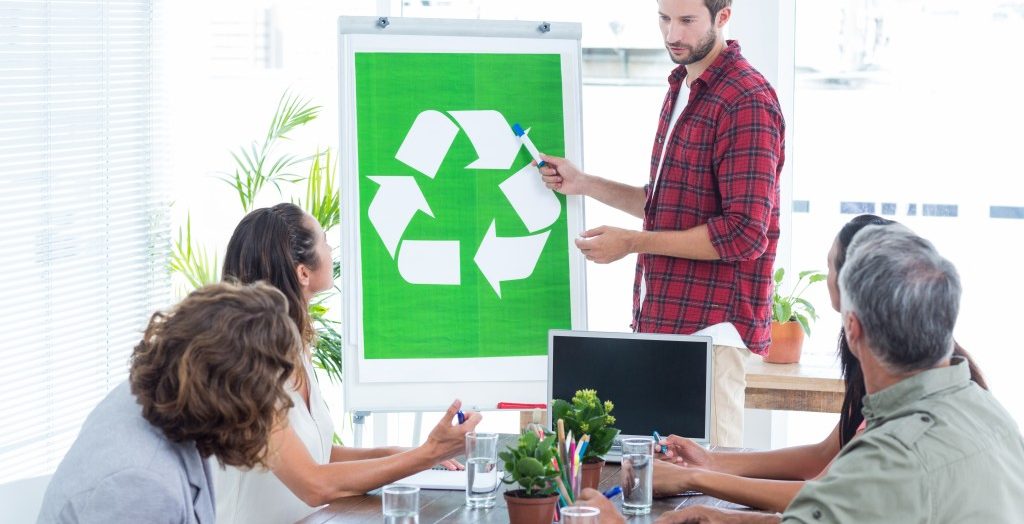In a world where everyone is made aware of the impacts of waste materials on the environment, it is not an impossible task to gain income from being aware. Being aware of what we can do to lessen the gradual damage to our environment can be a way to generate some cash on the side.
Manufacturers are slowly but surely going green, people are being encouraged to use less non-recyclable materials, etc. The process of going green is long and tedious, but it is something we need to do to save the only place we call home.
Where to Start the Journey
As mentioned in the previous section, the process of going green is not a task that can be accomplished overnight. An individual cannot just decide to save the environment and eliminate all things in their lives that are considered detrimental to the goal.
The journey to becoming environmentally aware starts slow. People were not raised with environmental concerns in mind. Their parents used diapers, feeding bottles, and other child-rearing items that were non-biodegradable. Growing up, people figured out life and found out the things they needed—all without thinking these things would hurt the environment in any way.
Years later, the planet is getting hotter during summer and colder during winter. The heat gets so intense in most parts of the world to the point that fires break out without someone lighting a match and throwing it at something flammable.
Even if that is the case, it is never too late to reduce the damage. One can start being environmentally aware through their daily activities. For example, they can wake up in the morning and make use of natural light to illuminate their surroundings instead of conserving energy with the use of LED or fluorescent lights.
Mankind making small changes in the way they live will make a big impact on the state of our environment. How? The average American consumes 100 kilograms of plastic annually. That number is a lot, knowing how lightweight most plastic materials are.
Why are we focusing on plastic? The reason is that they take up to a thousand years to decompose, depending on the material. The plastic bags people take home from supermarkets take 10 to 1,000 years before they decompose. Plastic bottles they drink out of takes a minimum of 450 years before decomposition.
There are plenty of materials that take ages to decompose. But plastic is the main culprit and is the most difficult one to avoid. It is used in food, beverages, accessories, etc.
How to Make Saving the Environment Profitable
As news about the planet slowly turning into an irredeemable wasteland, people are scrambling to undo—or lessen—the effects of their actions on the environment.
The easiest and most popular way of doing so is through recycling. People recycle plastic, paper, their old electronic gadgets, clothes, and other possessions that can be turned into something new and useful instead of being thrown out and adding to the pile that is hurting the planet.
1. Selling old or unused possessions
Books, gadgets, vehicles, clothing, and home appliances are a few of the most popular used items that can be sold to people or businesses. Some people opt for purchasing used books instead of new ones, ones who purchase old or broken gadgets to repair for use, used car dealerships who used refurbish cars for selling, and there are garbage bin rental companies who are willing to take in different types of waste either for disposal or recycling.
There are a variety of platforms where people who are looking for buyers of their unused possessions such as eBay and Amazon.
2. Selling empty ink cartridges

Printers use up ink contained in cartridges and most manufacturers of printing machines do not allow refills. Printer users are then left with a box full of empty ink cartridges. If thrown out, these cartridges can hurt the environment because they are made from plastic materials.
However, some businesses buy old cartridges. Some printer manufacturers also take empty printer ink cartridges from customers in exchange for discounts or coupons for when they purchase new cartridges.
3. Putting up your used cooking oil for sale
Green diesel companies producing biodiesel live off used cooking oil. It is impossible for homeowners to not have used cooking oil stored in a jar somewhere in their kitchens.
Biodiesel industry players purchase used cooking oil from restaurants and individuals in bulk, therefore reducing waste that is harmful to water. It is not a difficult task to store used cooking oil inside a safe gallon to sell it to these buyers. Those three tips are only the easiest ones to do. There are plenty of ways to make a little extra on the side when recycling, but it was mentioned that environmental awareness is a slow process. Starting with small and easy tasks is a good way to start the journey to becoming a protector of the environment.






